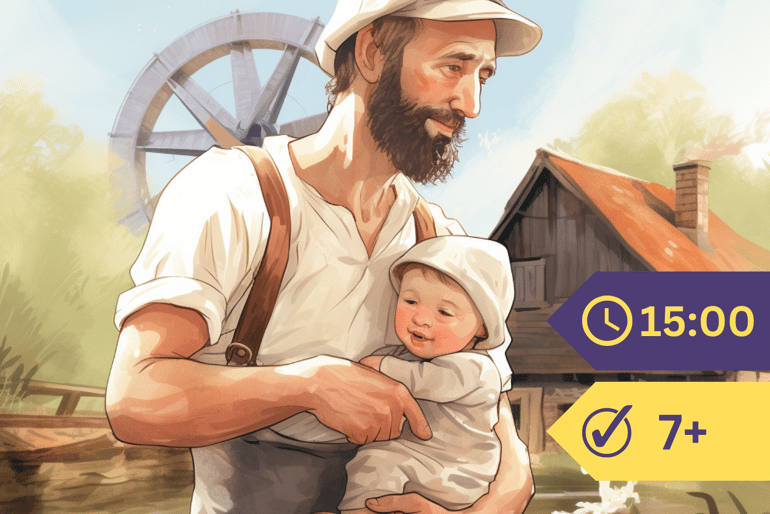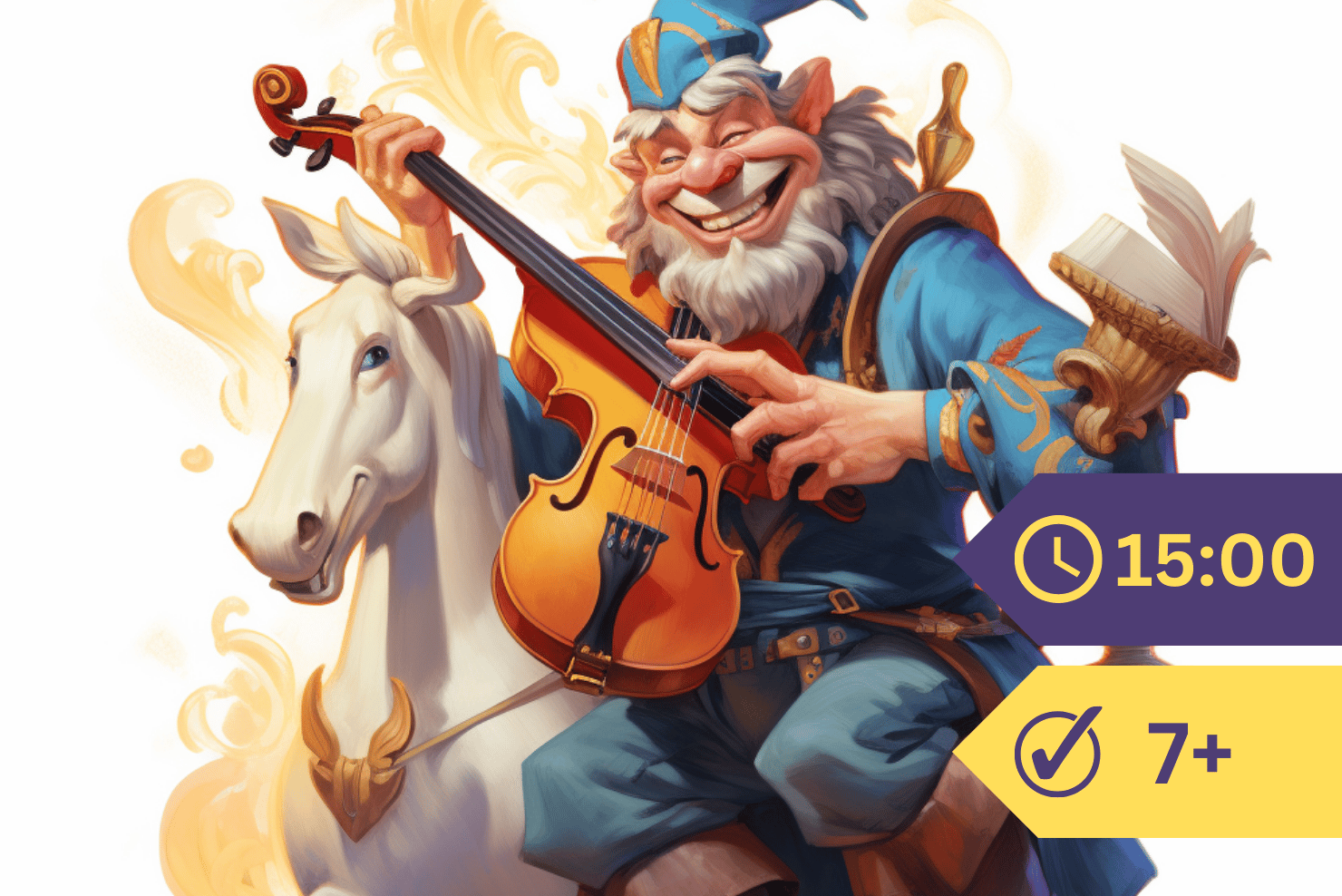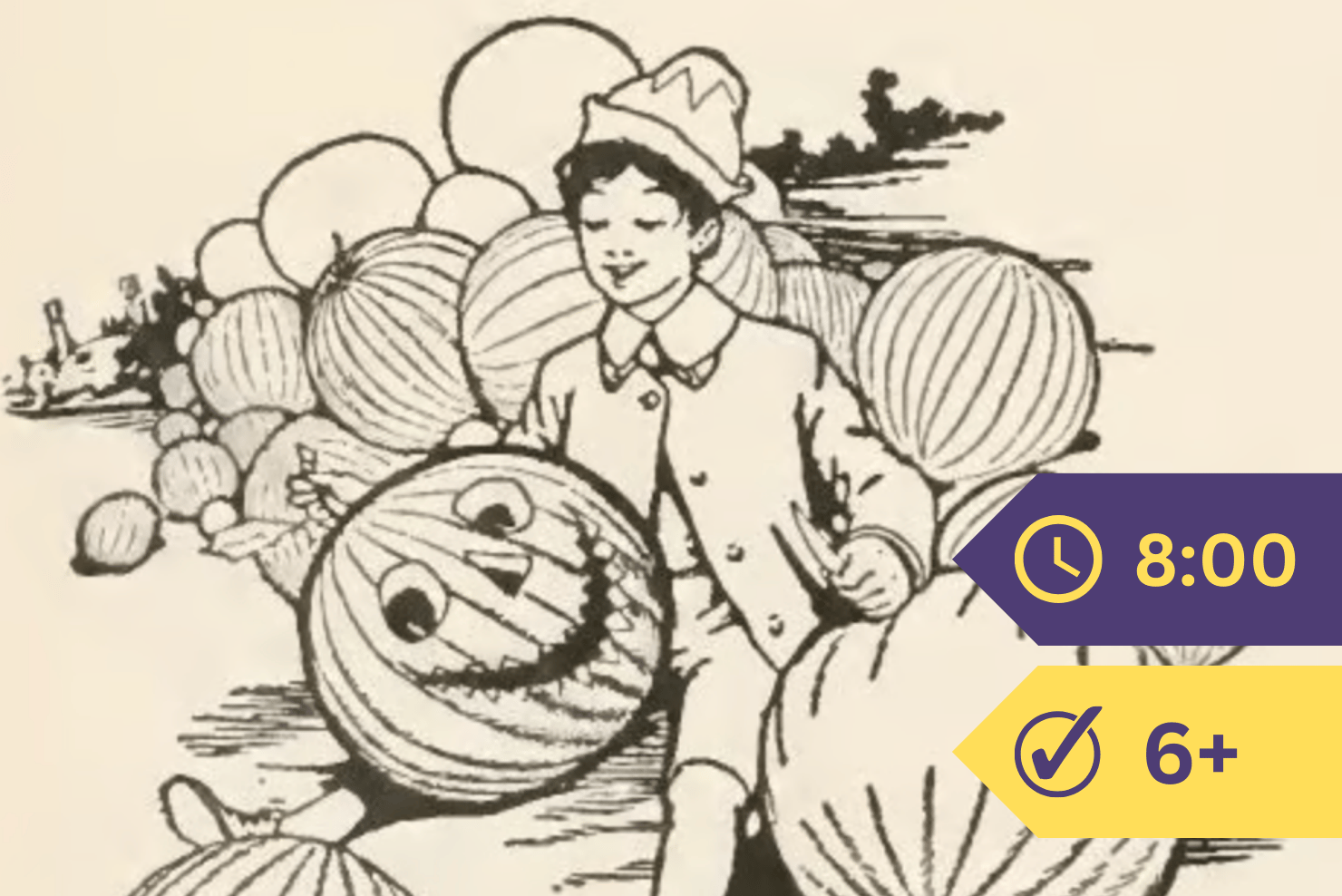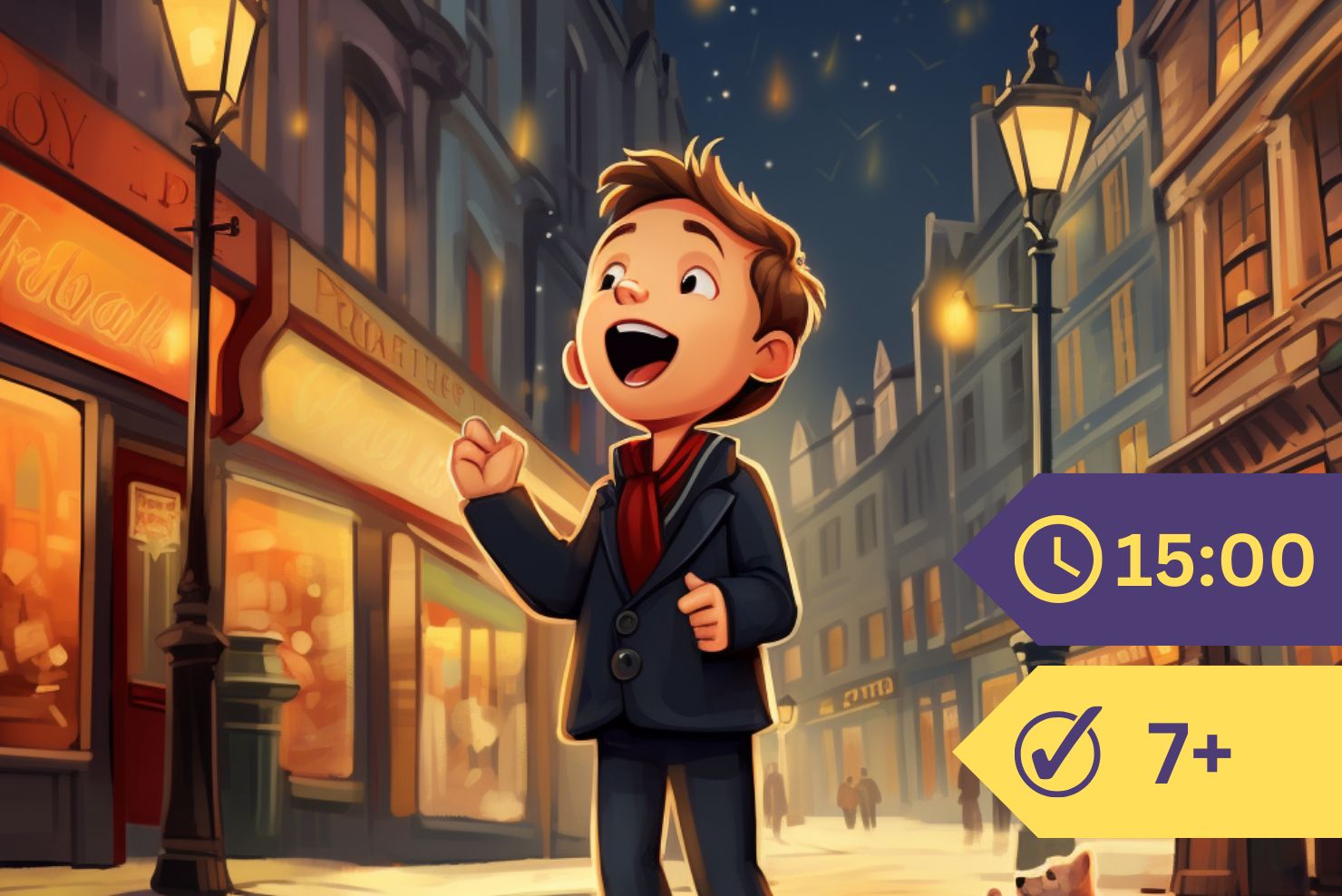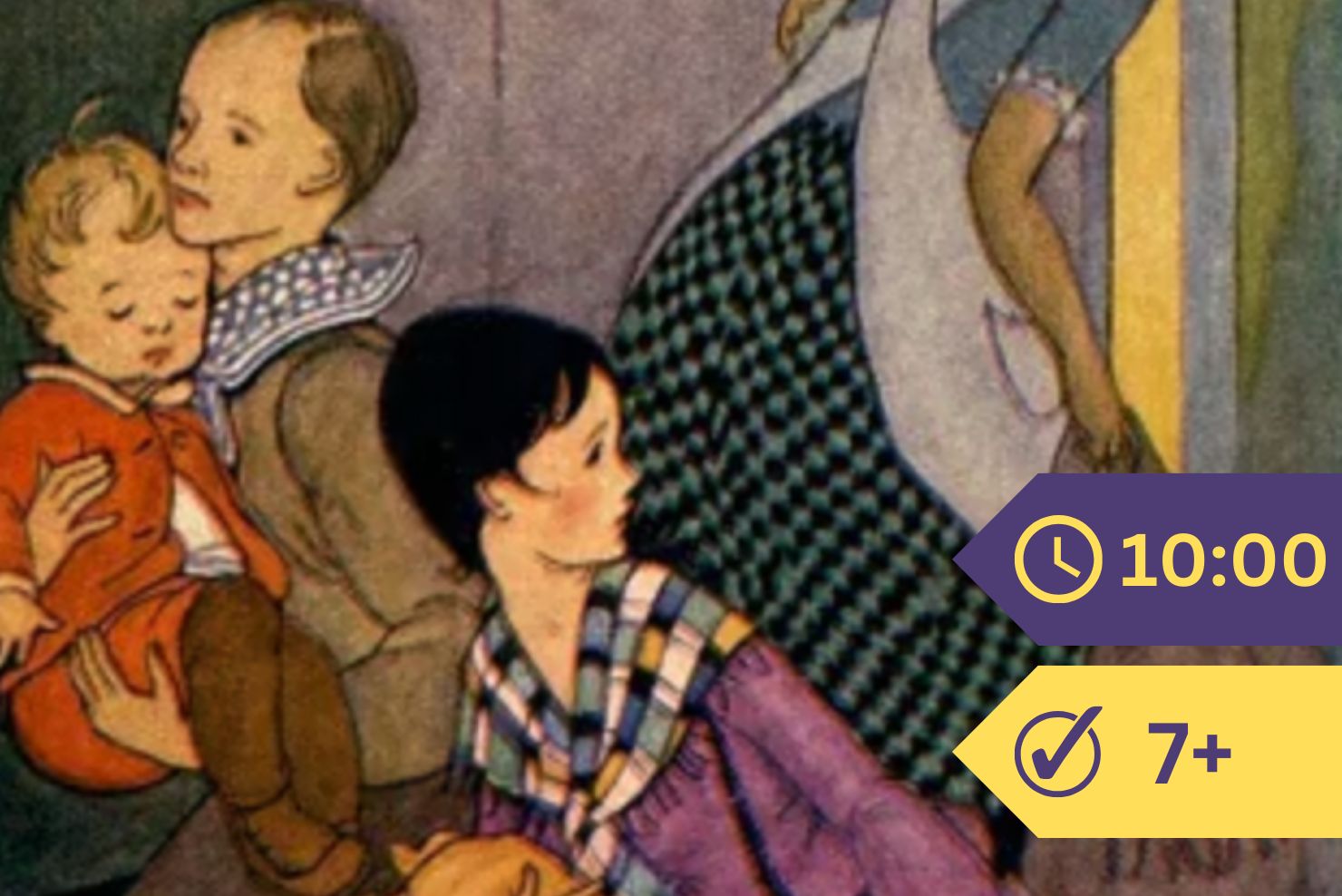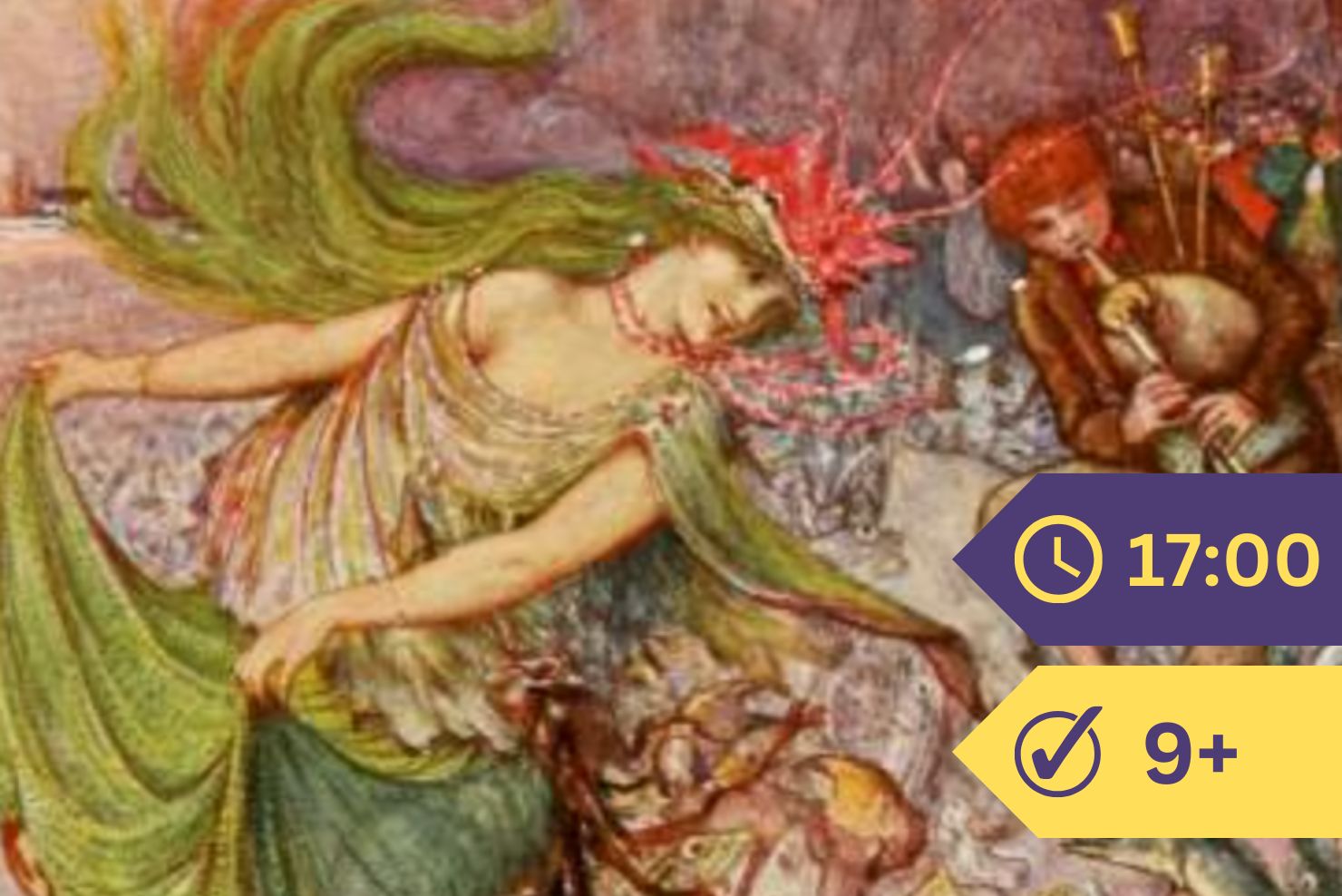There was a jolly miller
Lived on the river Dee;
He sang and worked from morn till night,
No lark so blithe as he.
And this the burden of his song
Forever seemed to be:
I care for nobody, no! not I,
Since nobody cares for me.
“CREE-E-EEKETY-CRUCK-CRICK! Cree-e-eekety-cruck-crick!” sang out the big wheel of the mill upon the river Dee, for it was old and ricketty and had worked many years grinding corn for the miller; so from morning till night it creaked and growled and complained as if rebelling against the work it must do. And the country people, at work in the fields far away, would raise their heads when the soft summer breezes wafted the sound of the wheel to their ears and say,
“The jolly miller is grinding his corn.” And again, at the times when the mill was shut down and no sound of the wheel reached them, they said to one another,
“The jolly miller has no corn to grind to-day,” or, “The miller is oiling the great wheel.” But they would miss the creaking, monotonous noise, and feel more content when the mill started again and made music for them as they worked.
But no one came to the mill unless they brought corn to grind, for the miller was a queer man, and liked to be alone. When people passed by the mill and saw the miller at his work, they only nodded their heads, for they knew he would not reply if they spoke to him.
He was not an old man, nor a sour man, nor a bad man; on the contrary he could be heard singing at his work most of the time. But the words of his song would alone have kept people away from him, for they were always these:
“I care for nobody, no! not I,
Since nobody cares for me.”
He lived all alone in the mill-house, cooking his own meals and making his own bed, and neither asking nor receiving help from anyone. It is very certain that if the jolly miller had cared to have friends many would have visited him, since the country people were sociable enough in their way; but it was the miller himself who refused to make friends, and old Farmer Dobson used to say,
“The reason nobody cares for the miller is because he won’t let them. It is the fault of the man himself, not the fault of the people!”
However this may have been, it is true the miller had no friends, and equally sure that he cared to have none, for it did not make him a bit unhappy.
Sometimes, indeed, as he sat at evening in the doorway of the mill and watched the moon rise in the sky, he grew a bit lonely and thoughtful, and found himself longing for some one to love and cherish, for this is the nature of all good men. But when he realized how his thoughts were straying he began to sing again, and he drove away all such hopeless longings.
At last a change came over the miller’s life. He was standing one evening beside the river, watching the moonbeams play upon the water, when something came floating down the stream that attracted his attention. For a long time he could not tell what it was, but it looked to him like a big black box; so he got a long pole and reached it out towards the box and managed to draw it within reach just above the big wheel. It was fortunate he saved it when he did, for in another moment it would have gone over the wheel and been dashed to pieces far below.
When the miller had pulled the floating object upon the bank he found it really was a box, the lid being fastened tight with a strong cord. So he lifted it carefully and carried it into the mill-house, and then he placed it upon the floor while he lighted a candle. Then he cut the cord and opened the box, and behold! a little babe lay within it, sweetly sleeping upon a pillow of down.
The miller was so surprised that he stopped singing and gazed with big eyes at the beautiful face of the little stranger. And while he gazed its eyes opened—two beautiful, pleading blue eyes,—and the little one smiled and stretched out her arms toward him.
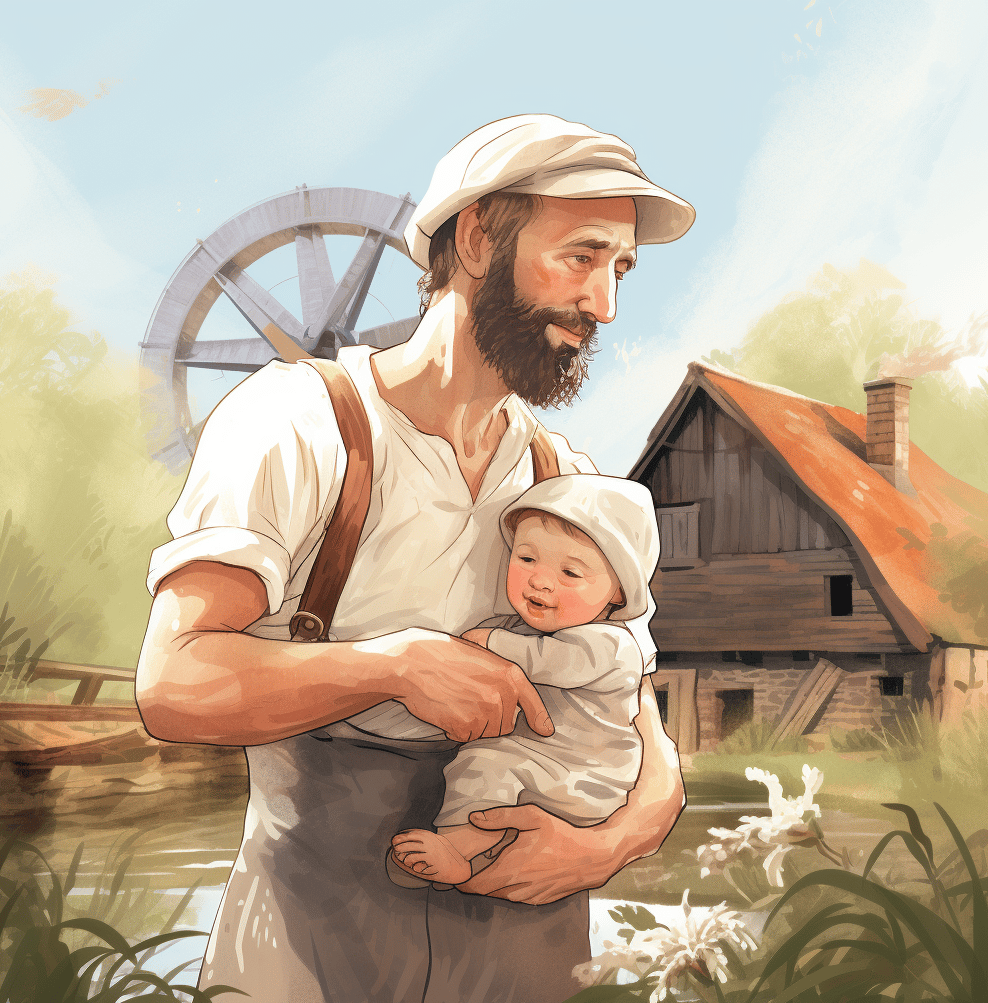
“Well, well!” said the miller, “where on earth did you come from?”
The baby did not reply, but she tried to, and made some soft little noises that sounded like the cooing of a pigeon.
The tiny arms were still stretched upwards, and the miller bent down and tenderly lifted the child from the box and placed her upon his knee, and then he began to stroke the soft, silken ringlets that clustered around her head, and to look upon her wonderingly. The baby leaned against his breast and fell asleep again, and the miller became greatly troubled, for he was unused to babies and did not know how to handle them or care for them. But he sat very still until the little one awoke, and then, thinking it must be hungry, he brought some sweet milk and fed her with a spoon.
The baby smiled at him and ate the milk as if it liked it, and then one little dimpled hand caught hold of the miller’s whiskers and pulled sturdily, while the baby jumped its little body up and down and cooed its delight.
Do you think the miller was angry? Not a bit of it! He smiled back into the laughing face and let her pull his whiskers as much as she liked. For his whole heart had gone out to this little waif that he had rescued from the river, and at last the solitary man had found something to love.
The baby slept that night in the miller’s own bed, snugly tucked in beside the miller himself; and in the morning he fed her milk again, and then went out to his work singing more merrily than ever.
Every few minutes he would put his head into the room where he had left the child, to see if it wanted anything, and if it cried even the least bit he would run in and take it in his arms and soothe the little girl until she smiled again.
That first day the miller was fearful some one would come and claim the child, but when evening came without the arrival of any stranger he decided the baby had been cast adrift and now belonged to nobody but him.
“I shall keep her as long as I live,” he thought, “and never will we be separated for even a day. For now that I have found some one to love I could not bear to let her go again.”
He cared for the waif very tenderly; and as the child was strong and healthy she was not much trouble to him, and to his delight grew bigger day by day.
The country people were filled with surprise when they saw a child in the mill-house, and wondered where it came from; but the miller would answer no questions, and as year after year passed away they forgot to enquire how the child came there and looked upon her as the miller’s own daughter.
She grew to be a sweet and pretty child, and was the miller’s constant companion. She called him “papa,” and he called her Nathalie, because he had found her upon the water, and the country people called her the Maid of the Mill.
The miller worked harder than ever before, for now he had to feed and clothe the little girl; and he sang from morn till night, so joyous was he, and still his song was:
“I care for nobody, no! not I,
Since nobody cares for me.”
One day, while he was singing this, he heard a sob beside him, and looked down to see Nathalie weeping.
“What is it, my pet?” he asked, anxiously.
“Oh, papa,” she answered, “why do you sing that nobody cares for you, when you know I love you so dearly?”
The miller was surprised, for he had sung the song so long he had forgotten what the words meant.
“Do you indeed love me, Nathalie?” he asked.
“Indeed, indeed! You know I do!” she replied.
“Then,” said the miller, with a happy laugh, as he bent down and kissed the tear-stained face, “I shall change my song.”
And after that he sang:
“I love sweet Nathalie, that I do,
For Nathalie she loves me.”
The years passed by and the miller was very happy. Nathalie grew to be a sweet and lovely maiden, and she learned to cook the meals and tend the house, and that made it easier for the miller, for now he was growing old.
One day the young Squire, who lived at the great house on the hill, came past the mill and saw Nathalie sitting in the doorway, her pretty form framed in the flowers that climbed around and over the door.
And the Squire loved her after that first glance, for he saw that she was as good and innocent as she was beautiful. The miller, hearing the sound of voices, came out and saw them together, and at once he became very angry, for he knew that trouble was in store for him, and he must guard his treasure very carefully if he wished to keep her with him. The young Squire begged very hard to be allowed to pay court to the Maid of the Mill, but the miller ordered him away, and he was forced to go. Then the miller saw there were tears in Nathalie’s eyes, and that made him still more anxious, for he feared the mischief was already done.
Indeed, in spite of the miller’s watchfulness, the Squire and Nathalie often met and walked together in the shady lanes or upon the green banks of the river. It was not long before they learned to love one another very dearly, and one day they went hand in hand to the miller and asked his consent that they should wed.
“What will become of me?” asked the miller, with a sad heart.
“You shall live in the great house with us,” replied the Squire, “and never again need you labor for bread.”
But the old man shook his head.
“A miller I have lived,” quoth he, “and a miller will I die. But tell me, Nathalie, are you willing to leave me?”
The girl cast down her eyes and blushed sweetly.
“I love him,” she whispered, “and if you separate us I shall die.”
“Then,” said the miller, kissing her with a heavy heart, “go; and may God bless you!”
So Nathalie and the Squire were wed, and lived in the great house, and the very day after the wedding she came walking down to the mill in her pretty new gown to see the miller.
But as she drew near she heard him singing, as was his wont; and the song he sung she had not heard since she was a little girl, for this was it:
“I care for nobody, no! not I,
Since nobody cares for me.”
She came up softly behind him, and put her arms around his neck.
“Papa,” said she, “you must not sing that song. Nathalie loves you yet, and always will while she lives; for my new love is complete in itself, and has not robbed you of one bit of the love that has always been your very own.”
The miller turned and looked into her blue eyes, and knew that she spoke truly.
“Then I must learn a new song again,” he said, “for it is lonely at the mill, and singing makes the heart lighter. But I will promise that never again, till you forget me, will I sing that nobody cares for me.”
And the miller did learn a new song, and sang it right merrily for many years; for each day Nathalie came down to the mill to show that she had not forgotten him.

